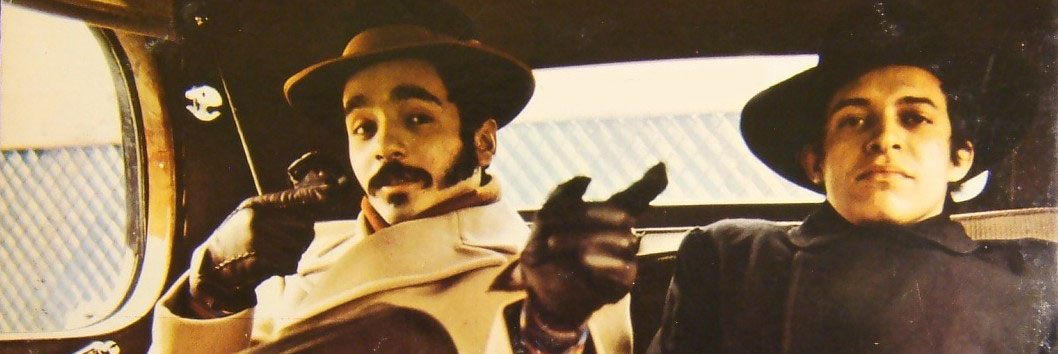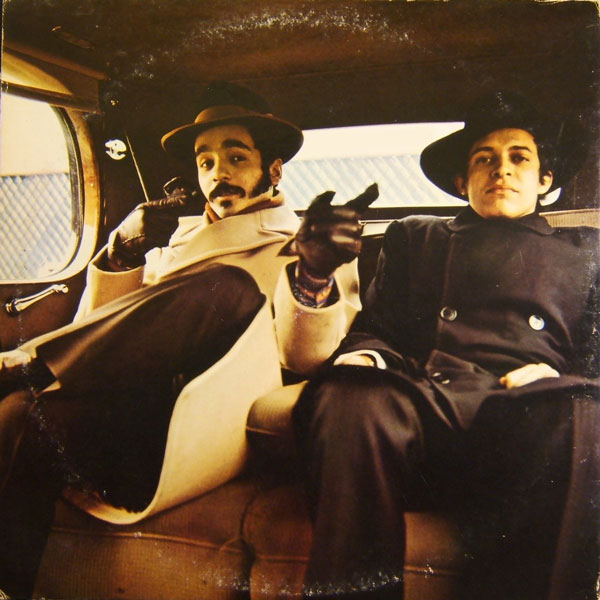One of the strongest and most profound memories I have of my childhood is of being 10 years old and visiting the historic El Moro fort in Viejo San Juan with my brother and grandparents.
While we were on the top platform and overlooking the Ocean, admiring the view and grandeur of the fort that had protected and guarded the island for over 500 years from outside invaders my grandfather leaned over to me and said something that as a 10 year old I couldn’t fully comprehend. As he put his hand on my shoulder he told me to look around, to look at the ocean and then over towards the pastel colored buildings and houses that paint Viejo San Juan. As I was looking he told me that everything I saw belonged to me, that it belonged to us, and that it was our responsibility to watch over it all and protect it. I remember being conflicted by what he said because it didn’t match what I had been taught in school which was that Puerto Rico belonged to the United States. I had been thought that Puerto Rico was a simply a property of the United States. To speak in music industry terms, it was simply an artist in a vast and valuable catalog it had come to own the masters to.

A couple weeks back I posted a rant on social media that was inspired by a flyer I saw. Although the flyer was the tipping point for me, the rant was really born from a number of observations and conversations I had recently had with friends and peers around our concern for the direction of Latin music and culture here in New York City. I am certain, though, that the realities we face here in New York also extend outwards to other cities and countries.
In short we have noticed and grown concerned with the co-opting of specific genres and cultural elements that we value greatly and hold with great love. In a time where all culture has become a commodity that is sold and traded off for a quick buck, it is particularly concerning to me, and others who share my feelings, that our music, like our neighborhoods have become gentrified. More and more I find myself confronted with the cold reality that what is being sold and marketed by the “gatekeepers” as Latin music is a water-downed gimmicky version of the music made by those from the outside.

Let’s look at salsa for example. Here in New York City, the birthplace of salsa, if you don’t count the OGs who are still around and performing since the golden era, you would be hard pressed to find one true solid salsa band. What you find are gimmick based bands who play a disrespectful version of the sounds that once dominated and moved the city. What you find are sloppy collectives of people dressed in their best thrift store 1970’s polyester outfits banging out some amateurish slop while a room full of misguided tourist and drunks dance to an approachable and non-threating version of “Latin” music. However, because we are in the era where hype is king, these bands get booked at some of the best venues and as a result get great revues and media support further adding to their hype.
Let’s not forget salsa’s brother, boogaloo. A few years back it seems the outside world rediscovered this once forgotten about genre and dove ass first into it. Boogaloo died decades ago and was resurrected just to be killed all over again. This time by a slew of gimmicky DJs and bands. At its finest boogaloo was a perfect blend of Afro-Caribbean rhythms blended with the soul music of its era. It was a purely Nuyorican invention that spoke to the blending of the Puerto Rican community with the African-American community here in New York City. At its worse it was cheesy version of both. Similar to the aforementioned bands and nights dedicated to salsa the same goes for boogaloo. Rather than attempting to capture the essence of the music, the DJs and bands rather focus on the glossiness of it. So what you find are bands and DJs who play dress up in 1960s attire and go about stripping the music of all its flavor. However, because they have proper press support the nights get attention and love.
Then there is the edit, remix, and electronic dance world. Good lord.
Let me begin by stating that I am a Hip-Hop head. I grew up in its golden era and learned to appreciate every other genre because of Hip-Hop. As a young kid digging for the samples on my favorite A Tribe Called Quest and Black Moon songs I came to love the originals that were the foundation of the music I loved. I say all that to say that I am a fan of sampling and re-interpreting music. What Premiere, Lord Finesse and all my favorite producers did in taking elements of jazz, funk, soul and other genres to create Hip-Hop classics was incredible and enhanced the originals. What most of these producers are doing now with sampling Willie Colon, Ray Barretto and others is pure garbage. Of course there a few examples where the originals were enhanced and the new versions have become equally timeless and solid as the original. What Antibalas did with “Che Che Cole” sticks out as a perfect example. Same with “Abuelita’s Dance” by Djinji Brown which masterfully samples two tracks by Willie Colon. Now, as far as all these moombathon, global bass, or whatever else #hashtag genre edits that get released routinely? Nah I’m good. We will be here waiting when you’re done misusing our culture and hoped on another trend. Just do us a favor and do it quickly because you are wearing out your welcome.
So what do I think is the solution? Support. Simple and plain. While they are busy savaging our barrio, we are busy being self-important and tribal. As individuals we don’t have power, it is only through the collective work and support that we win and reclaim. As a collective we need to denounce this gentrification of our music. Collectively we need to support those in our community making respectful attempt as preservation and proper progression of our culture. Let’s build together, not fight for venues and spotlights. Stop supporting things your soul tells you not to. Let’s challenge ourselves and each other. Shit, challenge me. I welcome and encourage it.
As I have grown older I have come to better appreciate my grandfather words to me. I know that it is my job to ensure that my cultural inheritance and all its treasures forever move forward and are passed on to the next generation in better conditions than when they were passed to me. That is something I take great concern with and something that I attempt to do with everything I do. That responsibility guides and motivates me.
I know that is why I am here.
– Words by Christian Mártir (NYC, Sociedad Records / Music Is My Sanctuary)
